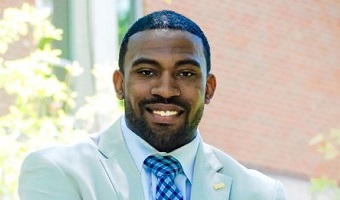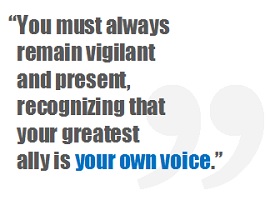Dayton Docket

Breaching the Norm— Inside the “Inclusion”
By Rodney W. Jacobs, Jr.
Written by Rodney Jacobs '15, this is the third part of a three-part series originally published in For The Defense. See the Related Links section at the bottom of this page for all three articles that include interviews with diversity champions, John Arrastia, partner with Arrastia Capote Partners, LLP, and Paul Lancaster Adams, the managing shareholder of Ogletree Deakins' Philadelphia office.
The legal profession has been under tremendous pressure to emulate a workforce that is representative of an ever-changing world. It was Albert Einstein who taught us, “You cannot solve a problem from the same consciousness that created it. You must learn to see the world anew.” Over the years, it seemed that the American legal profession tried to solve its diversity problems with the same thinking that created them. It clings to the past and the present, “to protect, preserve, and maintain.” It acted as if preserving the status quo will solve all, when in fact it will solve nothing. Fortunately, there is a new standard in the legal profession that fosters the triumphs of trailblazers of diversity, not just rainmakers of money. These trailblazers’ attempts have not only helped the legal field become more inclusive and diverse, but they have brought forth innovative ways of attracting the nation’s best and brightest diverse lawyers.
Over the past few months, we have gained tremendous insight on diversity in the small and large law firm environments. We have learned much from our discussions with Mr. John Arrastia, a partner with Arrastia Capote Partners, LLP, who was featured in an interview in this column in November 2015, and Mr. Paul Lancaster Adams, the managing shareholder of Ogletree Deakins' Philadelphia office, who was featured in an interview here in January 2016. From them we have learned what continuous change in the legal profession has afforded many candidates of diverse backgrounds. Further, through their words, we have discovered that we serve in a profession that not only grows old, but also grows up. However, just as with many other aspects of the legal profession, the will and the need to diversify involve a steady and slow process. This process seems to hinge on gradual movement, yet it is highlighted by deliberate and sincere improvements. Rightly, to emulate those whom they serve both domestically and internationally, clients and businesses are desperate for more diversity within their workforce.
Although the legal field is changing and becoming more receptive to diverse candidates, we have to keep in mind that achieving diversity still involves a slow process. With that in mind, candidates preparing to work in the legal environment should be without question ready to compete with their peers. An unwavering hallmark of the legal profession is demonstrating an impeccable work product and showcasing a desire to improve your legal skills. These core principles still reign supreme and will always be the main focal point when a firm considers “any” candidate. Therefore, theoretically speaking, anyone who has impeccable work product should automatically excel in the legal environment. The reality, however, is that success does not typically come without some modern hardships such as battling a myriad of real and perceived inclusivity issues. For instance, while you may excel at producing excellent work and rainmaking, you may experience hardships stemming from the overall ;culture of your firm.
 Even in the light of these hardships, there is some resolve in many firms to bridge culture dynamics, and diverse lawyers do not have to shoulder the burden of understanding and progression alone. As explained in the interviews with Mr. Arrastia and Mr. Adams, many firms, large and small, have diversity departments that tackle these issues and create symposiums to address and to eliminate negative norms and practices. However, you must always remain vigilant and present, recognizing that your greatest ally is your own voice. Don't be afraid to speak up. Organizations care about issues that can hinder your performance or work-life balance. Fortunately, firms are becoming more sensitive to these issues, and many are making it easier to come forward and discuss concerns to ensure the likelihood of a safe and stress-free environment. As a diverse lawyer, you must utilize your internal resources to correct any perceived problems, evoke understanding, and offer valued insight about diversity to your colleagues.
Even in the light of these hardships, there is some resolve in many firms to bridge culture dynamics, and diverse lawyers do not have to shoulder the burden of understanding and progression alone. As explained in the interviews with Mr. Arrastia and Mr. Adams, many firms, large and small, have diversity departments that tackle these issues and create symposiums to address and to eliminate negative norms and practices. However, you must always remain vigilant and present, recognizing that your greatest ally is your own voice. Don't be afraid to speak up. Organizations care about issues that can hinder your performance or work-life balance. Fortunately, firms are becoming more sensitive to these issues, and many are making it easier to come forward and discuss concerns to ensure the likelihood of a safe and stress-free environment. As a diverse lawyer, you must utilize your internal resources to correct any perceived problems, evoke understanding, and offer valued insight about diversity to your colleagues.
Understanding the perspectives and the experiences of the diverse individual is often what the legal profession lacks. More specifically, it is not uncommon for a diverse candidate to find him- or herself suddenly being subjected either to assumptions and ideas that do not correctly apply, or that are shocking and offensive. Unfortunately, the more someone is subjected to even subtly negative assumptions, the more isolating the environment. However, these types of cultural gaps can be made smaller in a workplace where open communication, deep listening, and practical and immediate solutions to issues as they occur are standard. In like manner, when a diverse candidate is brought into a firm that has a tradition of little or no diversity, it should be noted that the successful hire itself is only one step in the inclusivity process. Being inclusive means being actively engaged in a culture change and being committed to advancing diversity and inclusion as the rule and not the exception.
To suggest that these goals can be accomplished overnight, or even over a decade of expansive diversity initiatives, may be blind optimism. Nonetheless, we can go further in our profession and establish real hope by listening, understanding, and asking questions. We can gain real insight and practical solutions through this commitment to constant inquiry from our diverse workforce.
So, how can we heed the advice of Mr. Adams and Mr. Arrastia? Without question, Mr. Adams and Mr. Arrastia are trailblazers within our profession. They are individuals that dared to do right simply because it was fair. From a recent law school graduate and diverse individual perspective, I am thankful for their contributions to the legal profession and diversity initiatives across the country. To heed the advice of our trailblazers effectively, we must remain progressive, deliberate, efficient, and cognitive in our approach to our pursuit of diversity and inclusion. At no point should we stop innovating and challenging the status quo. In many ways, where the legal profession goes, so goes the nation. Therefore, it is increasingly important that legal professionals be out front and proud about diversity and its positive effects. In doing so, we continue to remind ourselves and the community to always work hard and fulfill our unequivocal responsibility to contribute to justice.
These articles originally appeared in For The Defense, the monthly magazine published by DRI – The Voice of the Defense Bar. Reprinted with permission.
About the author: Rodney W. Jacobs, Jr., has earned a J.D. from the University of Dayton School of Law, Dayton, Ohio, and is completing an M.P.A. with the university. He has interned with the U.S. Equal Opportunity Commission, the New York State Attorney's General Office, the U.S. Air Force Judge Advocate General, and the Honorable Walter H. Rice of the U.S. District Court for the Southern District of Ohio.
For more information, or to submit a news item, contact Denise Baker, assistant director of communications at the University of Dayton School of Law, at lawcomm@udayton.edu. Or submit your news online here.
